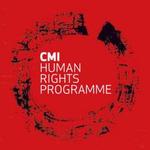CMI Working Paper
| 2004
Rural-urban linkages in sub-Saharan Africa: Contemporary debates and implications for Kenyan urban workers in the 21st century
Bergen: Chr. Michelsen Institute (CMI Working Paper WP 2004: 4) 13 p.
How to cite this publication:
Arne Tostensen (2004). Rural-urban linkages in sub-Saharan Africa: Contemporary debates and implications for Kenyan urban workers in the 21st century. Bergen: Chr. Michelsen Institute (CMI Working Paper WP 2004: 4)
Despite the rapid rate of urbanisation in Africa, most migrants retain links to their rural origins. Many households pursue a circular migration strategy or are semi-permanently split in a rural and an urban part by means of 'straddling' - i.e. not relinquishing their roots on either side of the rural-urban divide. It may be argued that African households are translocational rather than based on territorial co-habitation.
The debates in this paper revolve around the following issues: How permanent are these linkages? Will the oscillating migrants inevitably end up as members of a fully-fledged, stabilised, urban proletariat who have severed their links with their rural origins? Do the urban migrants need their rural linkages in order to survive in town? Are the rural-urban linkages at the level of the household detrimental to agricultural productivity?
Generally, national governments and international agencies alike tend to make policy and act as if urban and rural economies and societies are unconnected and as if agriculture only affects rural populations and non-agricultural production only takes place in urban areas. Greater appreciation of the complexity and diversity of local context is needed when policies are formulated and interventions made.
In conclusion, this paper asserts that rural-urban linkages reflect the survival strategies of poor households. The only prospect for the emergence of a stabilised urban proletariat lies in high economic growth rates and attendant employment creation.

Human Rights Programme
Jan 1983 - Dec 2010
Oscillatory labour migration in Kenya
Jan 2003 - May 2003




